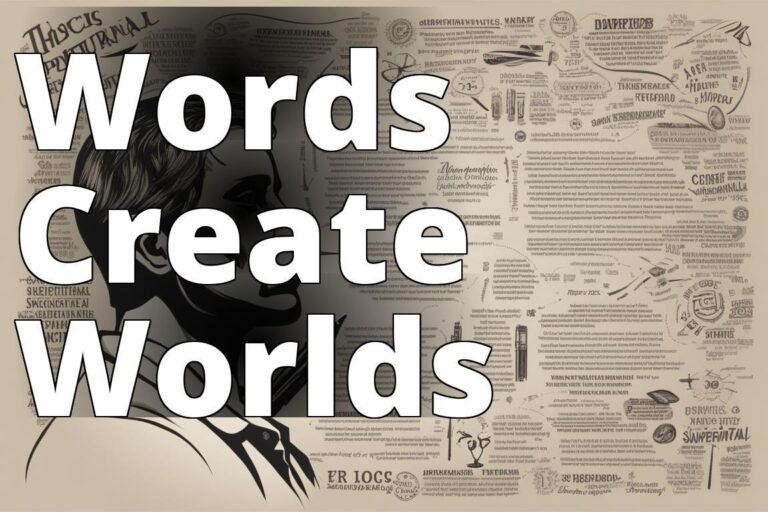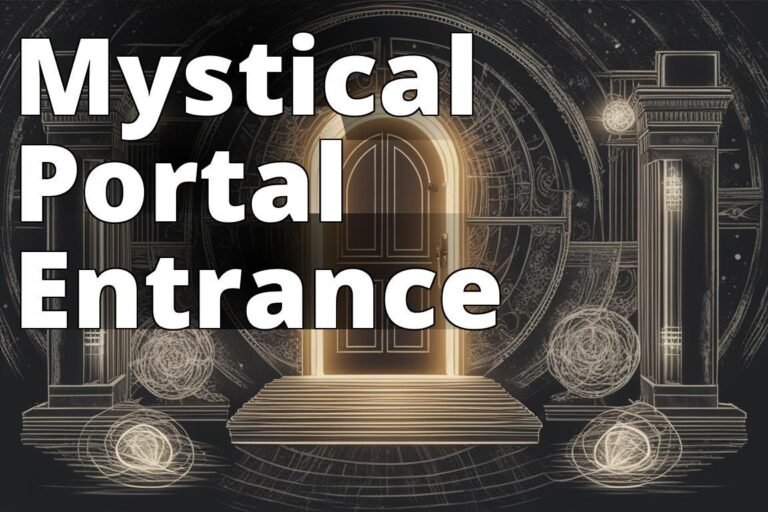The Physics of the Supernatural
Have you ever paused for a moment and asked yourself why you believe what you believe? The supernatural, with its alluring mysteries, often pushes us to confront the boundaries of our understanding. But what if we told you that the very fabric of the supernatural could be examined through the lens of physics? The idea might sound far-fetched, yet the realm of physics has always been about pushing the limits of what we consider possible.
Understanding Our Biases
Explore the reasons why understanding biases is crucial for interpreting the supernatural through the lens of physics.
– Recognizing biases helps clarify how personal beliefs can distort perceptions of supernatural phenomena.
– Understanding cognitive biases allows for a more objective analysis of extraordinary claims within the framework of physics.
– Awareness of biases fosters critical thinking, enabling individuals to separate genuine scientific inquiry from unfounded supernatural beliefs.
The Physics of the Supernatural: An Introduction
To truly grasp the physics of the supernatural, we must first acknowledge our biases. Reasons to understand how we are biased stem from our tendency to cling to familiar patterns and explanations. These biases often blind us to the possibilities that lie beyond the conventional domains of science.

Physics, at its core, is the study of the universe and its governing laws. Historically, it has been the field that dares to question the status quo, venturing into realms others deemed impossible. Albert Einstein, for instance, revolutionized our understanding of space and time with his theory of relativity, challenging centuries-old Newtonian physics. Could the same daring approach help us understand supernatural phenomena?
Questioning Reality
Before diving deeper, ask yourself: Is it possible that our understanding of reality is limited by our senses and preconceived notions? What if the supernatural exists not as an alternate reality but as a part of the physical world we have yet to fully comprehend?
The Intersection of Physics and Supernatural Phenomena
Physics provides a framework through which we can explore the supernatural. Quantum mechanics, a field rich in paradoxes and strange phenomena, often mirrors the inexplicable nature of the supernatural. Take, for example, the concept of quantum entanglement. Particles that are entangled behave as if they are connected, regardless of the distance separating them. This phenomenon raises questions about the nature of reality itself.

Could such entanglements be a scientific basis for experiences often labeled as supernatural, such as telepathy or premonitions? While mainstream science remains skeptical, the parallels are intriguing. Physicist Brian Cox once stated, “Quantum mechanics teaches us not to trust our intuition about the way the world works.”
Alternative Dimensions and Universes
Theories of multi-dimensions and parallel universes also offer fascinating insights. These theories suggest that what we perceive as supernatural might be interactions with other dimensions. The idea that multiple universes exist simultaneously is not just a science fiction plot but a legitimate scientific hypothesis known as the multiverse theory.

Insider Tip: Renowned physicist Michio Kaku suggests that the concept of a multiverse could explain many mysteries of the universe, including the supernatural.
Challenging Our Perceptions
Are we too quick to dismiss the supernatural as mere fantasy? Could our scientific explorations reveal truths that align with what ancient cultures have long believed? These questions challenge our scientific and philosophical understanding of the world.
The Role of Human Perception in Supernatural Experiences
Human perception is notoriously unreliable, often leading us to believe in phenomena without substantial evidence. Cognitive biases, such as confirmation bias, can make us see patterns where none exist, reinforcing our beliefs in supernatural events.

For instance, the well-documented placebo effect demonstrates the power of belief over reality. If belief can alter our physical state, could it also explain supernatural experiences? A study published in the Journal of Consciousness Studies explores how consciousness might influence physical reality, suggesting that our thoughts could have tangible effects.
Insider Tip: Dr. Dean Radin, a leading researcher in the field of consciousness studies, argues that traditional scientific approaches may overlook the influence of human consciousness on seemingly paranormal events.
The Influence of Cultural Narratives
Cultural narratives heavily influence our perception of the supernatural. Stories of ghosts, spirits, and otherworldly beings are prevalent across cultures, often reflecting the fears and beliefs of the society that tells them. These stories shape our understanding and expectations of the supernatural, sometimes blurring the line between reality and myth.
Thought-Provoking Question
Do cultural narratives serve as a bridge between the known and the unknown, allowing us to explore the supernatural in a way that is both safe and familiar?
Scientific Inquiry into Supernatural Claims
The scientific method demands skepticism and evidence. However, the supernatural often eludes traditional scientific investigation, leaving many researchers frustrated. Despite this, some scientists continue to explore these phenomena, seeking explanations grounded in physical laws.

For example, studies on near-death experiences (NDEs) aim to understand the neurological basis of these profound events. Research published in The Lancet suggests that NDEs might be linked to specific brain activities during moments of crisis. While these studies provide insights, they also highlight the complexities of studying experiences that are deeply subjective.
Insider Tip: Dr. Sam Parnia, an expert in resuscitation science, has conducted extensive research on NDEs, proposing that consciousness may exist independently of brain function.
Bridging the Gap Between Science and the Supernatural
Is there a middle ground between skepticism and belief that allows for open exploration without dismissing the supernatural outright?
The Challenge of Evidence
The intangible nature of supernatural experiences poses a significant challenge for scientific inquiry. How do we measure and validate experiences that defy our current understanding of reality? This question remains at the forefront of scientific investigation into the supernatural.
The Impact of Supernatural Beliefs on Society
Belief in the supernatural has profound effects on society, influencing everything from personal decisions to cultural practices. These beliefs can provide comfort, explain the unexplainable, and even foster a sense of community.

However, they can also lead to fear and misunderstanding. The Salem witch trials, for example, were fueled by fear of the supernatural, resulting in tragic consequences. This historical context reminds us of the importance of critical thinking and evidence in evaluating supernatural claims.
The Balance of Belief and Skepticism
How do we balance belief in the supernatural with a healthy dose of skepticism? This question is crucial as we navigate a world where technology and science continue to advance at a rapid pace.
Insider Tip: Historian and author Richard Wiseman emphasizes the importance of maintaining an open mind while demanding rigorous evidence, encouraging a balanced approach to supernatural claims.
Thought-Provoking Question
Can belief in the supernatural coexist with a scientific worldview, or are they inherently at odds?
Conclusion: Embracing the Unknown
As we explore the physics of the supernatural, we must remain open to the possibilities that lie beyond our current understanding. The intersection of physics and the supernatural challenges us to question our beliefs, reconsider our biases, and embrace the unknown.

In the end, the pursuit of knowledge requires couragethe courage to challenge our perceptions, to explore the boundaries of science, and to entertain the possibility that the supernatural might one day be explained within the framework of physics. By doing so, we honor the spirit of inquiry that drives both science and human curiosity.
For more explorations on similar topics, check our articles section.
Final Thought-Provoking Question
Are we ready to accept that the supernatural might one day become a part of our scientific understanding of the universe?
Common Questions
What are the reasons to understand our biases in physics?
Understanding biases helps us interpret supernatural phenomena accurately.
Who benefits from recognizing biases in supernatural studies?
Researchers and enthusiasts benefit by gaining clearer insights and findings.
How can awareness of biases improve our understanding of the supernatural?
Awareness allows for more objective analysis, leading to better conclusions.
What are the implications of ignoring our biases in supernatural physics?
Ignoring biases can lead to flawed interpretations and misinformation.
Why might some people resist understanding their biases in this field?
Some may fear it challenges their beliefs or undermines their experiences.
How can we overcome the discomfort of confronting our biases?
Embracing this discomfort can lead to deeper knowledge and personal growth.







